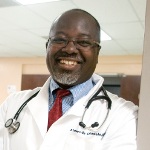Clinical Core

Program Director: Neel Gandhi, MD
AHRI Co-Investigator: Liya Wassie, PhD
Dekalb County Board of Health Co-Investigator: Alawode Oladele, MD, MPH
Improving our understanding of human tuberculosis requires conducting high quality studies among well defined patient populations. The goal of the Clinical Core is to provide centralized expertise and capacity to enroll well characterized cohorts of participants infected with M. tuberculosis to meet the aims of TBRU-ASTRa. Coordination by the Clinical Core will create internal consistency across cohorts and improve the efficiency of enrollment for the TBRU-ASTRa projects involving human subjects, as well as for TBRU Collaborative Projects.
The Clinical Core will be a major resource for TBRU-ASTRa by providing: 1) expertise in clinical and translational research that spans more than a decade and includes over 15 TB endemic settings; 2) coordination of participant enrollment and follow-up to achieve maximal efficiency and synergy between projects; 3) centralized specimen collection, processing and shipping through the TBRU-ASTRa Data Management Center; and 4) assurance of high-quality, ethical research conducted in accordance with U.S. and international regulatory requirements.
TBRU-ASTRa Clinical Sites
Subjects will be enrolled at two highly experienced and established sites: the Armaeur Hansen Research Institute (AHRI) in Addis Abab Ethiopia and at the DeKalb County Board of Health in Atlanta, Georgia. Infrastructure at these sites for conducting TB clinical and translational studies is among the best in the world. Data management, quality assurance and regulatory procedures at AHRI and Atlanta are also of the highest quality, making these exceptional sites to achieve project aims. Study recruitment for TBRU-ASTRa in Ethiopia draws from health centers in Addis Ababa.
The DeKalb County Board of Health in metropolitan Atlanta includes the Refugee Clinic and LTBI Clinic where participants will be enrolled into the TBRU-ASTRa cohorts. The DeKalb site has collaborated with Emory and CDC in TB research for over a decade. More than 2,500 newly arrived refugees from highburden TB countries are seen annually and over 1,500 adults with LTBI are identified and offered treatment each year. The Refugee Health Screening Program provides new refugees with a health assessment that includes LTBI testing, as well as HIV, HBV, HCV, and syphilis testing, and realy all new refugees in DeKalb County are adherent with the screening procedures. The LTBI Clinic is responsible for coordinating LTBI treatment and provides centralized, efficient care. Their capacity to serve foreign-born clients is superb with multiple language translators.




